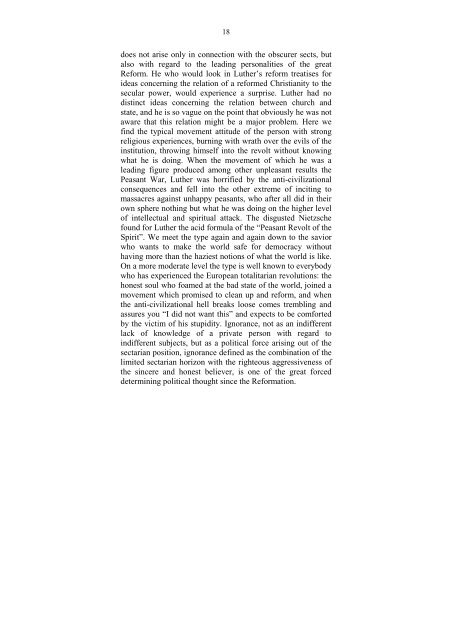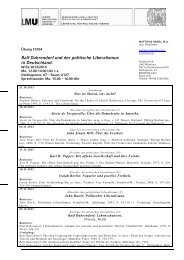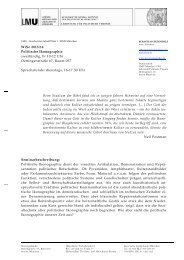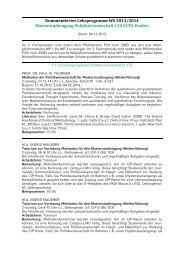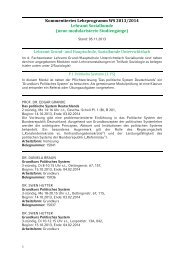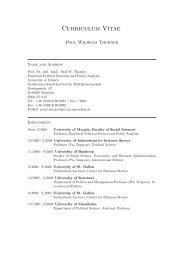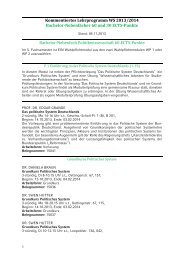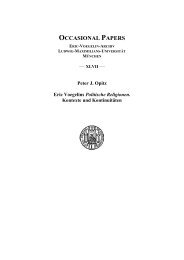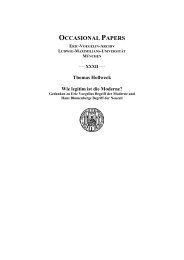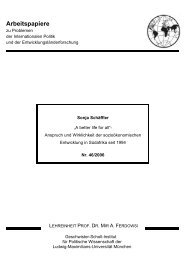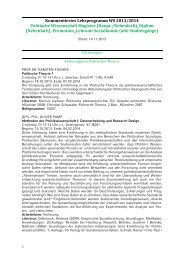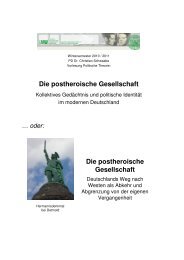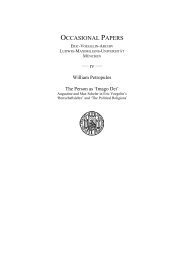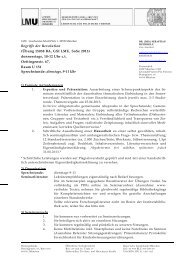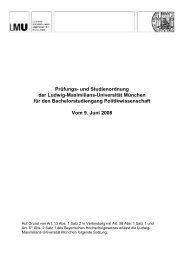Eric Voegelin The People of God - Geschwister-Scholl-Institut für ...
Eric Voegelin The People of God - Geschwister-Scholl-Institut für ...
Eric Voegelin The People of God - Geschwister-Scholl-Institut für ...
You also want an ePaper? Increase the reach of your titles
YUMPU automatically turns print PDFs into web optimized ePapers that Google loves.
18<br />
does not arise only in connection with the obscurer sects, but<br />
also with regard to the leading personalities <strong>of</strong> the great<br />
Reform. He who would look in Luther’s reform treatises for<br />
ideas concerning the relation <strong>of</strong> a reformed Christianity to the<br />
secular power, would experience a surprise. Luther had no<br />
distinct ideas concerning the relation between church and<br />
state, and he is so vague on the point that obviously he was not<br />
aware that this relation might be a major problem. Here we<br />
find the typical movement attitude <strong>of</strong> the person with strong<br />
religious experiences, burning with wrath over the evils <strong>of</strong> the<br />
institution, throwing himself into the revolt without knowing<br />
what he is doing. When the movement <strong>of</strong> which he was a<br />
leading figure produced among other unpleasant results the<br />
Peasant War, Luther was horrified by the anti-civilizational<br />
consequences and fell into the other extreme <strong>of</strong> inciting to<br />
massacres against unhappy peasants, who after all did in their<br />
own sphere nothing but what he was doing on the higher level<br />
<strong>of</strong> intellectual and spiritual attack. <strong>The</strong> disgusted Nietzsche<br />
found for Luther the acid formula <strong>of</strong> the “Peasant Revolt <strong>of</strong> the<br />
Spirit”. We meet the type again and again down to the savior<br />
who wants to make the world safe for democracy without<br />
having more than the haziest notions <strong>of</strong> what the world is like.<br />
On a more moderate level the type is well known to everybody<br />
who has experienced the European totalitarian revolutions: the<br />
honest soul who foamed at the bad state <strong>of</strong> the world, joined a<br />
movement which promised to clean up and reform, and when<br />
the anti-civilizational hell breaks loose comes trembling and<br />
assures you “I did not want this” and expects to be comforted<br />
by the victim <strong>of</strong> his stupidity. Ignorance, not as an indifferent<br />
lack <strong>of</strong> knowledge <strong>of</strong> a private person with regard to<br />
indifferent subjects, but as a political force arising out <strong>of</strong> the<br />
sectarian position, ignorance defined as the combination <strong>of</strong> the<br />
limited sectarian horizon with the righteous aggressiveness <strong>of</strong><br />
the sincere and honest believer, is one <strong>of</strong> the great forced<br />
determining political thought since the Reformation.


